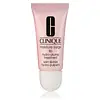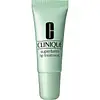What's inside
What's inside
 Key Ingredients
Key Ingredients

 Benefits
Benefits

 Concerns
Concerns

 Ingredients Side-by-side
Ingredients Side-by-side

Petrolatum
EmollientPolybutene
Polyglyceryl-2 Triisostearate
EmulsifyingHydrogenated Polyisobutene
EmollientTocopheryl Acetate
AntioxidantPvp
Emulsion StabilisingSilica
AbrasiveHydrogenated Castor Oil
EmollientPPG-51/Smdi Copolymer
Caprylic/Capric/Myristic/Stearic Triglyceride
EmollientButyrospermum Parkii Butter
Skin ConditioningSea Whip Extract
Skin ConditioningCeramide Ng
Skin ConditioningCholesterol
EmollientAstrocaryum Murumuru Seed Butter
EmollientCaprylic/Capric Triglyceride
MaskingEthylene/Propylene/Styrene Copolymer
C12-16 Alcohols
EmollientTetrahexyldecyl Ascorbate
AntioxidantButylene/Ethylene/Styrene Copolymer
Caprylyl Glycol
EmollientPalmitic Acid
EmollientHydrogenated Lecithin
EmulsifyingPetrolatum, Polybutene, Polyglyceryl-2 Triisostearate, Hydrogenated Polyisobutene, Tocopheryl Acetate, Pvp, Silica, Hydrogenated Castor Oil, PPG-51/Smdi Copolymer, Caprylic/Capric/Myristic/Stearic Triglyceride, Butyrospermum Parkii Butter, Sea Whip Extract, Ceramide Ng, Cholesterol, Astrocaryum Murumuru Seed Butter, Caprylic/Capric Triglyceride, Ethylene/Propylene/Styrene Copolymer, C12-16 Alcohols, Tetrahexyldecyl Ascorbate, Butylene/Ethylene/Styrene Copolymer, Caprylyl Glycol, Palmitic Acid, Hydrogenated Lecithin
Petrolatum
EmollientPolybutene
Polydecene
Skin ConditioningBis-Diglyceryl Polyacyladipate-2
EmollientOctyldodecanol
EmollientMicrocrystalline Wax
Emulsion StabilisingTocopheryl Acetate
AntioxidantPolyglyceryl-2 Triisostearate
EmulsifyingAloe Barbadensis Leaf Extract
EmollientCholesterol
EmollientHordeum Vulgare Extract
EmollientTriticum Vulgare Germ Extract
Skin ConditioningSqualane
EmollientLinoleic Acid
CleansingRetinyl Palmitate
Skin ConditioningSalvia Sclarea Extract
AntiseborrhoeicGlycine Soja Oil
EmollientTetrahexyldecyl Ascorbate
AntioxidantStearyl Glycyrrhetinate
Skin ConditioningBetula Alba Bud Extract
Skin ConditioningHexylene Glycol
EmulsifyingPotassium Sulfate
Caprylyl Glycol
EmollientPhenoxyethanol
PreservativeCI 15850
Cosmetic ColorantCI 19140
Cosmetic ColorantPetrolatum, Polybutene, Polydecene, Bis-Diglyceryl Polyacyladipate-2, Octyldodecanol, Microcrystalline Wax, Tocopheryl Acetate, Polyglyceryl-2 Triisostearate, Aloe Barbadensis Leaf Extract, Cholesterol, Hordeum Vulgare Extract, Triticum Vulgare Germ Extract, Squalane, Linoleic Acid, Retinyl Palmitate, Salvia Sclarea Extract, Glycine Soja Oil, Tetrahexyldecyl Ascorbate, Stearyl Glycyrrhetinate, Betula Alba Bud Extract, Hexylene Glycol, Potassium Sulfate, Caprylyl Glycol, Phenoxyethanol, CI 15850, CI 19140
 Reviews
Reviews

Alternatives
Ingredients Explained
These ingredients are found in both products.
Ingredients higher up in an ingredient list are typically present in a larger amount.
Caprylyl Glycol is a humectant and emollient, meaning it attracts and preserves moisture.
It is a common ingredient in many products, especially those designed to hydrate skin. The primary benefits are retaining moisture, skin softening, and promoting a healthy skin barrier.
Though Caprylyl Glycol is an alcohol derived from fatty acids, it is not the kind that can dry out skin.
This ingredient is also used as a preservative to extend the life of products. It has slight antimicrobial properties.
Learn more about Caprylyl GlycolCholesterol is a class of organic molecules called lipids. It helps hydrate your skin and is essential to having a healthy skin barrier.
Our skin naturally contains cholesterol in the outermost layer. Besides cholesterol, it also contains ceramides and fatty acids. Cholesterol makes up about 1/4 of your skin's outer layer and barrier. Your skin barrier is responsible for keeping allergens and microbes out. Having a healthy skin barrier is also responsible for keeping your skin firm and plump.
Our bodies use cholestrol to create vitamin D, steroid hormones, and more.
Learn more about CholesterolPetrolatum is more commonly known as petroleum jelly. It is created by mixing waxes and mineral oils.
This ingredient is effective at reducing water loss by 99%. This is because it is an occlusive. Occlusives create a hydrophobic barrier on the skin to prevent evaporation. This property makes it great for hydrating dry skin.
Pro tip: Use occlusives, such as this ingredient, on damp skin for the best results.
The quality or origin of petrolatum is only known when disclosed by the brand. Most cosmetic petrolatum has gone through several purification stages.
Another benefit of occlusives is it protects your skin against infection or allergies.
Petrolatum may not be safe for fungal-acne. Studies show mineral oil / petroleum leads to the growth of M. Furfur, a type of yeast.
Learn more about PetrolatumPolybutene is used to help control the viscosity of a product. This just means it helps adjusts the texture.
It is a polymer and does not get absorbed into the skin due to its large size.
Studies found this ingredient did not irritate skin in concentrations below 15%.
Learn more about PolybuteneThis ingredient is a form of glycerin with emulsifying and emollient properties.
As an emulsifier, this ingredient helps keep products together while adding a thick texture. The manufacturer states this ingredient has emollient properties. Emollients help keep the skin hydrated by trapping moisture in.
Polyglyceryl-2 Triisostearate is created by reacting diglycerin and isostearic acid. Due to the isostearic acid base, it may not be safe for Malassezia or fungal acne.
Learn more about Polyglyceryl-2 TriisostearateTetrahexyldecyl Ascorbate (THD) is a stable and oil-soluble form of Vitamin C.
THD is special in that it has the ability to travel deeper into skin than traditional ascorbic acid while maintaining the same skin benefits (double win!).
Because it’s oil-soluble, THD dives deep into your skin’s fatty layers (think ceramides and cholesterol) to fight off the kind of free radicals that mess with your skin barrier. This makes it a great pair with water-based vitamin C (ascorbic acid) that mainly works on the surface.
Even at just 0.1%, THD is already showing great antioxidant activity. When used up to 2%, it helps keep your skin happy and calm, especially when it’s stressed from pollution or sun.
Want to fade dark spots or tackle hyperpigmentation? You’ll want 5% or more. Pairing it with brightening buddies like niacinamide or licorice root gives even better results. One study even used 30% THD with other brighteners and saw real results on stubborn discoloration, even in melasma-prone skin.
A note on THD: It’s has a slightly silky, oily texture and usually shows up colorless or pale yellow (though the exact shade can vary by supplier).
While you can sneak it into water-based formulas, it really shines when paired with silicones or oils, which help your skin soak it up better.
THD is pretty stable, but it’s still vulnerable to degradation like ascorbic acid. Too much light or heat (above 113°F / 45°C) can break it down over time. Go for dark and opaque packaging that keeps it safe and shady!
Read more about other types of Vitamin C:
Learn more about Tetrahexyldecyl AscorbateTocopheryl Acetate is AKA Vitamin E. It is an antioxidant and protects your skin from free radicals. Free radicals damage the skin by breaking down collagen.
One study found using Tocopheryl Acetate with Vitamin C decreased the number of sunburned cells.
Tocopheryl Acetate is commonly found in both skincare and dietary supplements.
Learn more about Tocopheryl Acetate